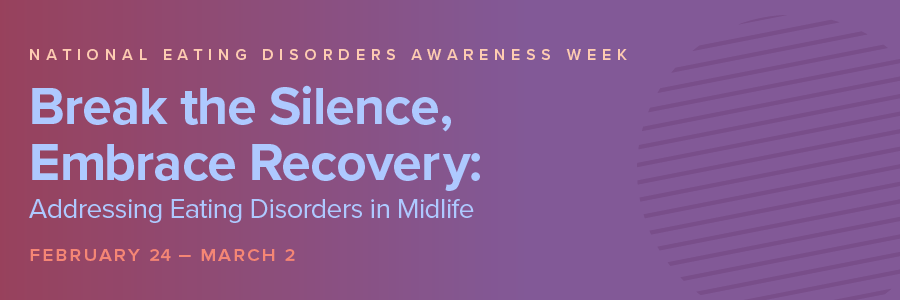
February 24 – March 2, 2025

If you or someone you know has an eating disorder and is in need of help, contact the National Alliance for Eating Disorders’ helpline Monday – Friday, 9 a.m. to 7 p.m. ET at 866-662-1235 or the ANAD helpline Monday – Friday, 10 a.m. to 10 p.m. ET, at 888-375-7767.
The annual observance of National Eating Disorders Awareness Week (NEDAW) highlights eating disorders’ impact on individuals across the United States, particularly women and girls. This year’s observance takes place from February 24 to March 2, 2025. Throughout the week, the Office on Women’s Health (OWH) joins organizations, health professionals, and communities across the country to reduce stigma, support recovery, and connect individuals with helpful resources.
This year’s theme, Break the Silence, Embrace Recovery: Addressing Eating Disorders in Midlife, focuses on the challenges many women face in their 40s, 50s, and beyond, such as hormonal changes, body image struggles, and societal pressures, which can increase the risk for eating disorders.
This age group is often overlooked in discussions and lack appropriate resources related to eating disorders. By addressing the unique risk factors in midlife, promoting conversations, and providing actionable resources, OWH seeks to empower women in this stage of life to prioritize their health and well-being.

